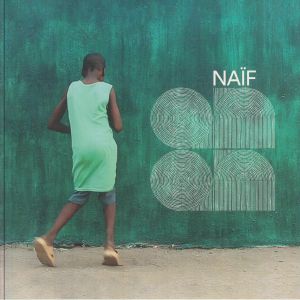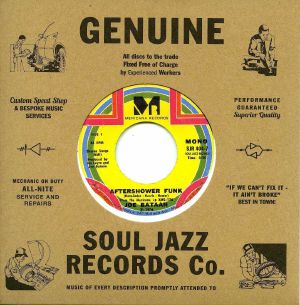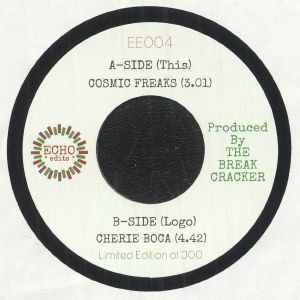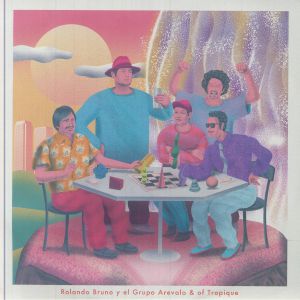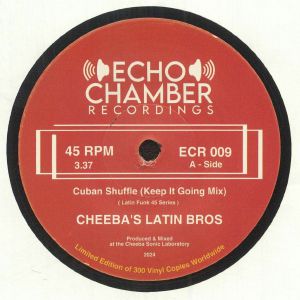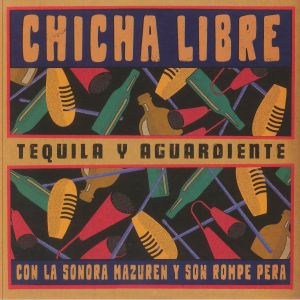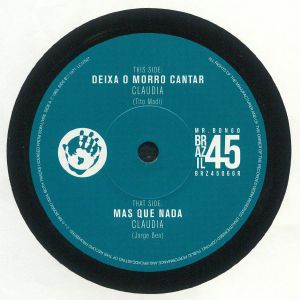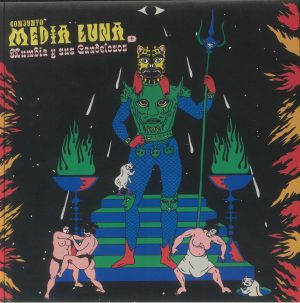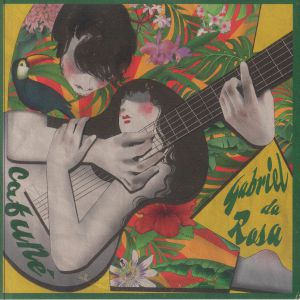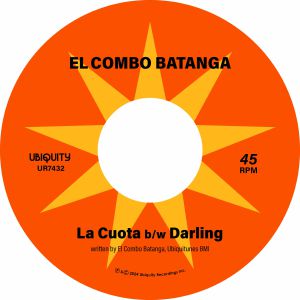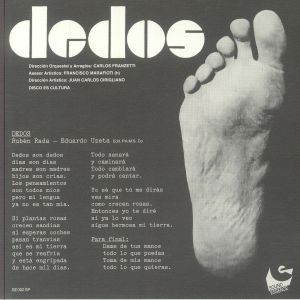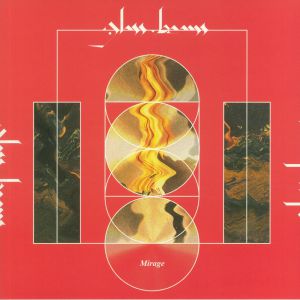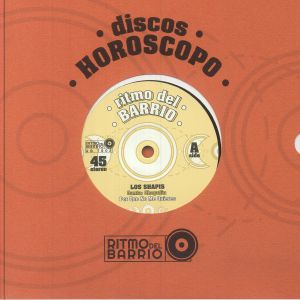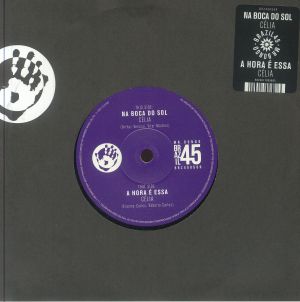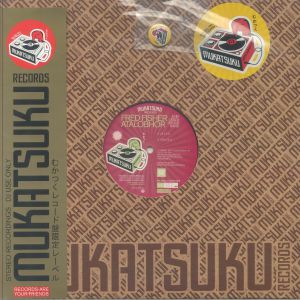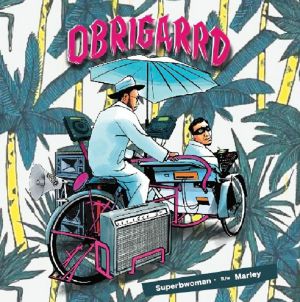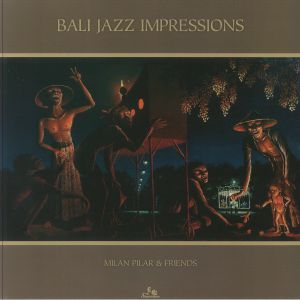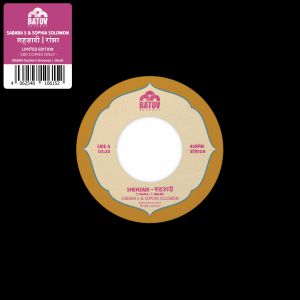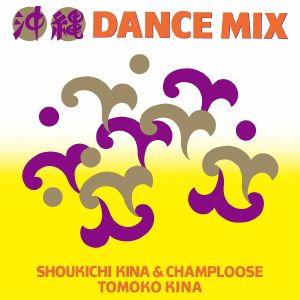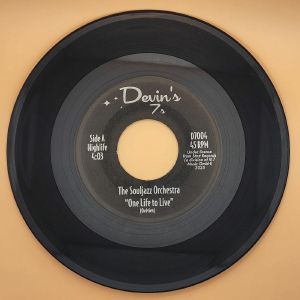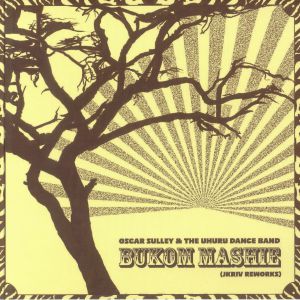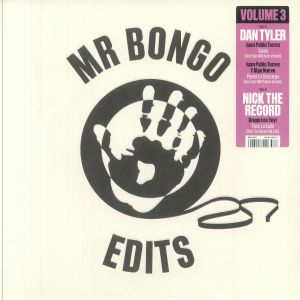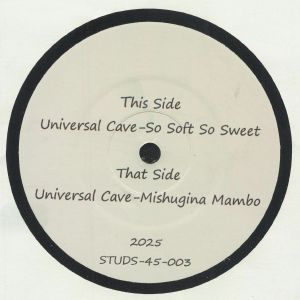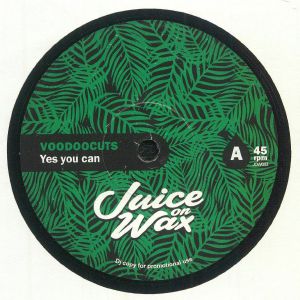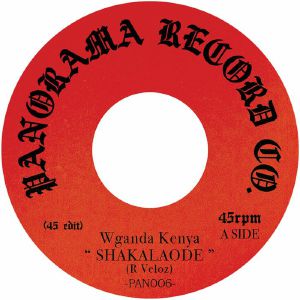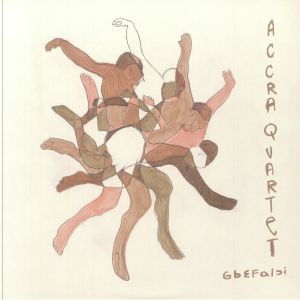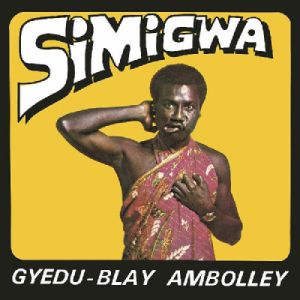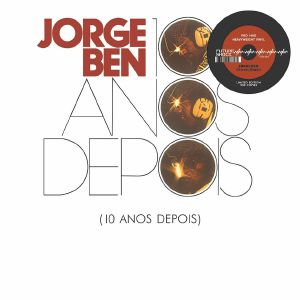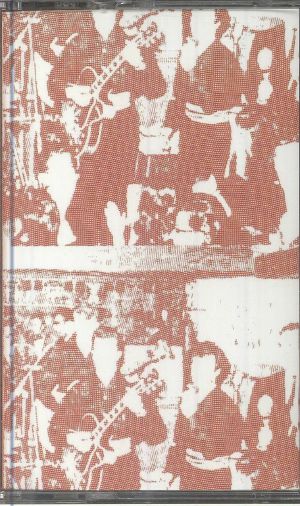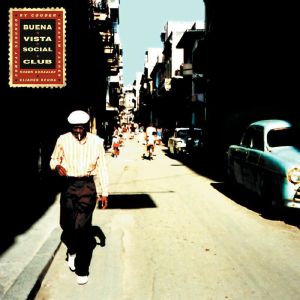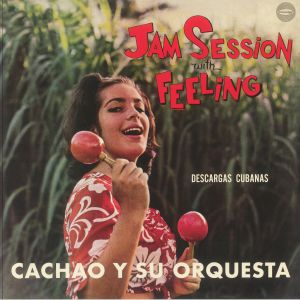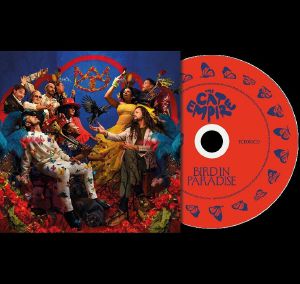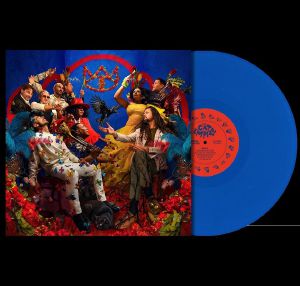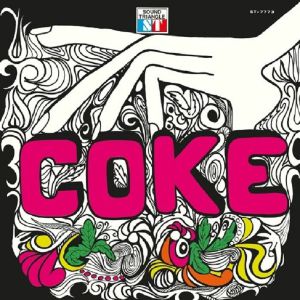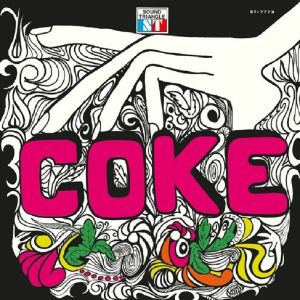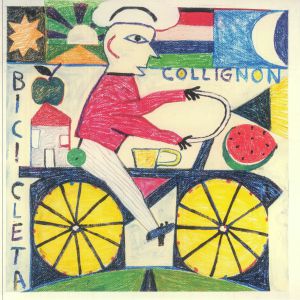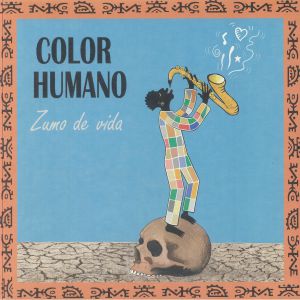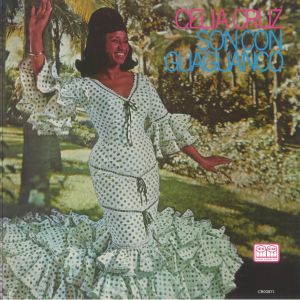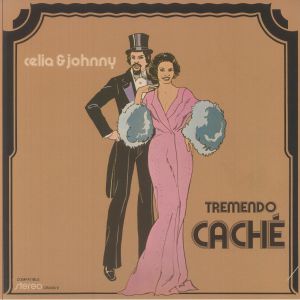Filter
在庫状況
Featured
リリースタイトル
値段
タグ
Back catalogue: International
Juno's full catalogue of International
シングル
in stock $12.98
Review: An intriguing song is 'Aftershower Funk', the Latin American musician Joe Bataan's curt salsa single from 1974. Fresh, cologned, groomed, and with towel firmly wrapped round hair, Bataan's largely instrumental track is about as lightfooted as the sprightly young man he was, then at 34 years old. With heavy tin drum and cowbell clangings peppered throughout, a toe-tapping mood is sure to beset the listener. B-sider 'Fin' continues the mood, uniting percussion with piano, brass, whistle and rhythm guitar; a much fuller exercise in triumphant finality.
… Read more in stock $12.70
Review: The latest addition to Echo Edits keeps the funk coming courtesy of Break Character who delivers two powerful tracks that are indicative of his unique approach, names to enhance each edit with extra layers of FX and beats. 'Cosmic Freaks' takes a 60s go-go rock groove and infuses it with Moog and Space Echo effects while paying homage to the psychedelic club sounds of Pierre Henry and JJ Perrey. 'Cherie Boca' then transports you in an instant to the funky samba rhythms of 70s Brazil with an extended edit and added beats to guide dancers from the favela to the beach. Two distinct styles, perfect for different vibes.
… Read morePlayed by: Voodoocuts
in stock $17.13
Split (7")
Cat: ECR 53. Rel: 25 Mar 25
in stock $18.77
Review: Mr Bongo take an MPB breather, tempering their recent larger-scale ambition to reissue mammoth Brazilian disco on comp with a 7" side order appetiser of a classic Brazilian MPB track. Celia's 'Na Boco Do Sol' ('At the Mouth of the Sun') is a gestalt slice of slow-samba, bringing with it a dash of torrid soul and telenovela cinematics. The favourite Arthur Verocai collaborator sings of psychic cities and imaginariums of the soul, verifying a well-travelled spirit; Verocai himself, and Vitor Martins, both lend the song a fuzzy phonic with their guitars and strings. And on the B side comes 'A Hora e Essa, the first track from her second self-titled LP: a lively samba-funk workout, doused in jazzy piano licks, strutting guitars and punchy horns.
… Read more in stock $11.32
Cuban Shuffle (7" limited to 300 copies)
Cat: ECR 009. Rel: 05 Mar 25
Review: Cheeba's Latin brothers are back with yet another Havanan shuffle, extensively vacationing in Cuba to soak in very best of the nation's ripest stylistic amassments. Taking cues from cut and paste funk to Latin boogaloo, 'Cuban Shuffle' and 'Pablo's Theme' urge us formerly to "keep it going, now" before latterly dropping us into a fuzz-scat vat of hazy brass and stomping, found percussion. Most notably, the A-side's vinyl scratches sate a pruritic itch, and a careful dosage of reverb marks out a roomy but expansive atmosphere, one difficult to recreate lest you actually were there in 1970s Cuba.
… Read more in stock $17.13
in stock $24.30
Review: Two supreme MPB/bossa nova cuts courtesy of Mr Bongo's resident popular-musica plug Claudia. The MPB singer began her career at the tender age of nine and gained recognition in the 1960s. Her repertoire extends to samba and rock, and having put out an extensive suite of LPs, we're more than faithful in Claudia's selective brilliance, not least when it comes to her own catalogue. Here on the A we have 'Deixa o Morro Cantar', which features on Claudia's very first 7", released in 1965 by RGE: a warm, burring, brass-backed beat typhoon. And on the flip side comes her timeless version of the mythic 'Mas Que Nada', a jazzier folk-funk take on the Jorge Ben classic.
… Read more in stock $11.04
Bogotokio (7" + insert)
Cat: OKRA 206. Rel: 02 Apr 25
Review: Conjunto Medialuna's latest album on Little Beat More is a direct trip to the heart of Bogota's rich cumbia scene. The record blends traditional rhythms with psychedelic influences driven by the Colombian accordion and ecstatic percussion that is so strongly associated with this style. These are two of the jams from it, but frankly you should also check out the full LP. It's a tribute to the guacharaca and the lively street parrandas where each song explores new interpretations of classic sounds. Featuring collaborations with N. Hardem, Mismo Perro, Son Rompe Pera, MC Hydro and Japanese-Latin percussionist Muupy, Noches de Medialuna, it transcends cultural boundaries and joins the dots between traditional and modern urban Latin music which is now so hugely popular around the world.
… Read more in stock $21.26
Review: After his debut album E o que a casa oferece from 2023, Gabriel da Rosa is back with another silken bossa nova record, in homage to the musical style that raised him. 'Cafune' was first released digitally a follow-up single to the alnbum, one which rounded out the year that said debut was released, and which was written for the soundtrack to the film film All Happy Families (Haroula Rose). Now an authentic 12" version, the song is here backed by the B-side 'Sort Of', an impressive desert passage through refractive, rainbow dream pop.
… Read more in stock $16.29
Review: The electrifying return of El Combo Batanga. The Afro-Cuban band and Ubiquity Records favourites descend upon us once more in a sallying storm of Isthmian lightning, bridging the spirit of classic Fania and Tico Records releases, and whipping them back around and through gales of Latin funk, son, timba and boogaloo. "Batanga" refers to the traditional Cuban instrument heard throughout their records, if you listen closely: new A cut 'La Cuota' brings an urgent, hyperbolic funk, while 'Darling' contrasts with nixie moods, a heart-burning Latin soul lament.
… Read more in stock $11.04
Review: This is a real lost South American Latin Jazz-Funk treasure from Argentina taken from some original 1974 recordings led by Carlos Franzetti. Known for his late 70s jazz-fusion album Graffiti, Franzetti recorded Dedos after returning to Argentina from Mexico where he was musical director at Fermata International. His friend Mochin Marafiotti, A&R at Music Hall, proposed the Latin Jazz project and the session featured Ruben Rada, Ricardo Lew, Emilio Valle, Osvaldo Lopez and Franzetti himself. Though initially overlooked, Dedos and Doce y Diez now receive a long-overdue reissue as they remain high on energy and deeply jazz gems with a Latin twist.
… Read more in stock $24.03
Review: Straop yourself in and prepare for a cosmic trip on psyched out cosmic polyrhythms with kosmische overtones at the hands of newcomer Glass Beams. This debut on Research Record is a stunning one from the enigmatic producer but will have you googling t find out as much as you can while you get lost in the sliding bass and transcendent synthwork. It's tinged with a certain retro charm and 70s prog magic but also feels decidedly new and fresh. Masterful.
… Read more in stock $16.56
Review: Space Echo returns with a bold funk-fuelled trip here that is powered by irresistible rhythms built on downtempo grooves. The track reflects on war-driven forces destabilising communities and Gianluca Petrella's trombone work channels pure Fred Wesley-esque funk energy while 1970s-inspired choral arrangements amplify its introspective message. Alongside this, Agosta's remix of 'Mother Forgive Us' from The Invisible Session's Echoes Of Africa transforms the track into a futuristic Afro-funk odyssey with tribal percussion tubing up next to pulsating electronics. A great package with a message of climate urgency that calls for a reconnection to nature.
… Read more in stock $14.09
Por Que No Me Quieres (reissue) (7" + photocard)
Cat: 63145. Rel: 01 Jan 90
in stock $16.01
Review: The wonderful Brazil 45 series from Mr Bongo is back with its big old torch to shine a beam of deserving attention on two standout funk and bossa nova tracks from Rosa Maria, which originally came in 1972 and have remained in demand ever since. The A-side, 'Deixa Nao Deixa', blends Afro-Latin guitar, wild horns and percussion with infectious vocal harmonies that all coalesce into a Brazilian funk classic. On the B-side, 'Avenida Atlantica' delivers alternating funk and bossa beats beneath layers of vocals, horns and percussion to bring big energy and dancefloor-ready heat. This reissue ensures these timeless tracks become available for your rotation once more.
… Read morePlayed by: ISOUL8 (Volcov)
in stock $10.50
Review: Reissued on Japanese talent scourers Musicaanossa Gryps, whose special interest lies in every oddity from obscure breakbeat to hip-hop and jazz, comes the debut, originally self-released album from Cuban cellist, songwriter and vocalist Yaniel Matos. At once arresting and strikingly pure, Matos attends to the ears with a naturalistic plucked cello style and high tenor, proffering an easygoing Afro-latin feel whose tender valence few can claim to know without musical inducements such as this. Backed by a star cast of musicians such as Sidiel Vieria on bass and Cuca Teixeria on drums, Matos reissues a humble throbber of a record here.
… Read more in stock $22.92
WTFS: The Afro Boogie Disco Funk EP (Obi Edition) (hand-numbered 12" + button badge + sticker with obi-strip limited to 50 only copies)
Cat: MUKAT097 OBI. Rel: 24 Feb 25
Review: Mukatsuku has a well-earned reputation as a gold standard label for boogie, disco and Afro gems and that isn't going to change once you've heard this new one. It's packed with revived Afro disco sounds from Fred Fisher Atalobhor and His Ogiza Dance Band. 'WTFS' kicks off and was originally released back in 1981 but its infectious low end and funky rhythms, colourful synths and vocals laden with soul will still resonate on modern floors. On the B-side, 'Ebi Lolo' goes big on bold brass notes and jangling guitar riffs that all coalesce into an irresistible funk sound. This 12" also comes with a nice button badge and sticker.
… Read morePlayed by: Mukatsuku Records Chart, Craig Charles Funk And Soul
in stock $15.46
in stock $24.03
in stock $16.85
Review: 'Shehzadi' (which means "Princess") is an Indo-disco gem featuring Solomon's Hindi vocals over Sababa 5's blend of hypnotic drums, nice pulsing bass, bright electric guitar and sparkling synths in a minor key. It channels '80s nostalgia with a modern twist and so rather evokes a Stranger Things meets Bollywood-type vibe. 'Ranjha' (which means 'Lover') shifts to a Middle Eastern feel with synths that echo traditional instruments like the saz. The upbeat groove complements Solomon's dynamic vocals and is filled with hope while dramatic pauses and an exuberant synth solo from Sophia add extra flair to make for a compelling mix of emotion and energy.
… Read more in stock $13.81
Review: Fourth Wave reissue one of the great works of Japanese composer, keyboardist and producer Hiroshi Sato. Forming part of a fresh flood of reissues that the label have explicitly mandated, Sato's are highlights among a discrete period of exquisitely recorded and visually designed LPs from the late 70s and early 80s. With a sleekly surreal cover artwork by Tadanori Yokoo - psych rock's pastiching answer to Vaughan Oliver - Sato brought chilled finger-flair to his various recorded synth patches, electric pianos, chamber brasses and guitars, all of which are recorded to produce a precise, razored sound in xpander-funk. Something latent - something much more - than mere smooth AOR is conveyed here. Perhaps it can be focalised in the LP's aura of effortless, disengaged mellowness, as if good comportment and style is an inevitability of life in cosmopolitan 80s Tokyo.
… Read more in stock $22.08
Dondon Bushi (7")
Cat: FWRF 004. Rel: 08 Apr 25
Review: Japan's Fourth Wave Record Factory sure does know how to serve up brilliantly beguiling sounds that ate you well out of your here and now. Next up is this, 'Dondon Bushi' 7" by Shoukichi Kina, Champloo and Tomoko Kina that explores a mix of Okinawan traditional sounds and modern grooves. The Mbira dance mix of the A-side jam is a bubbly rhythm with worldly percussion and soulful melodies that echo folk majesty and are topped with a wonderful weird vocal from Shoukichi Kina. On the flip, there is a more lazy and downtempo style dub rhythm, 'Tie Island' (No Man's Island mix) which is another worldly trip.
… Read more in stock $23.47
Review: Ottawa's Afro-jazz-funk collective returns with a limited 7" showcasing two dynamic tracks that highlight their genre-blending prowess. Originally released in 2014 on Inner Fire, 'One Life To Live' kicks off Side-1 with an exhilarating fusion of funk, Latin and Afro rhythms. The track's lively horn arrangements and tight percussion create an infectious groove, balancing intricate musicianship with danceable energy. On Side-2, 'Kingdome Come' dives deeper into jazz territory, merging Afro-Cuban jazz with jazz-funk and Latin jazz elements. The result is a richly textured piece that moves fluidly between laid-back grooves and vibrant, rhythmic bursts. The percussion is sharp, and the brass shines with both restraint and exuberance, highlighting the band's ability to navigate complex arrangements while maintaining a relaxed, natural flow.
… Read morePlayed by: Mukatsuku Records Chart
in stock $18.50
Cat: RNT 45013. Rel: 21 Feb 25
Review: JKriv's classic Bukom Mashie Rework gets a deluxe revival in a delectable 7-inch package having long been hard to find if not out of print entirely. And now what's more it also features a fresh acid dub. The original eight minute opus has been expertly trimmed for a streamlined A-side stomper, while the B-side showcases a brand-new version with a reimagined arrangement. This edition is embellished with vibrant 303 acid lines and live flute by the talented Domenica from Underground System all of which ensure that it is sure to become a big summer anthem once more in 2024.
… Read more in stock $16.29
Review: Dan Tyler and Nick The Record's third installment in the Mr Bongo Edits series brings a bold twist to Cuban classics with three tracks that are equal parts cosmic and dancefloor-ready. On the A-side, Tyler extends two Juan Pablo Torres tracks from his reissued 1978 'Algo Nuevo' and 1977's 'Super Son.' First, Tyler reimagines 'Cacao,' a standout track from Torres' LP, giving it room to breathe and intensifying the percussive climax with swirling synths and spacey dub effects. It's a track that thrives on a big system, building tension as it goes, and works wonders in the right environmentijust ask anyone who caught it at La Paloma in Barcelona. Next, Tyler dials into 'Pastel En Descarga,' turning the Latin-funk fusion into a punchy, trippy dub with delay and drama, keeping the track's energy while taking it further into spacey, cosmic territory. On the flip, Nick The Record tackles Grupo Los Yoyi's 1977 'Paco La Calle,' taking a 2009 edit and expanding it into a longer, more hypnotic piece. The percussion pushes and pulls as the psychedelic synths swirl, creating a dynamic and ever-building groove. The 2025 version is elevated with new synth lines courtesy of Tyler, deepening the track's psychedelic richness. A cosmic whirlwind of reworks that bridges the gap between '70s Cuban innovation and modern dancefloor sensibilities.
… Read more in stock $18.23
Review: Universal Cave set out on a brand new cosmic spelunk. Flipping a pair of raucous Latin disco pancakes on a searing summer lowrider bonnet (in lieu of a non-stick pan), these free-range disco ovules pack much underfoot promise for the discerning dancefloor. The Philly collective kicks things off with the spry 'So Soft So Sweet', with an elusively sourced sing-along hook, blazing synth-gasms, and impulsive drums. 'Mishugina Mambo', on the other hand, gleans its inspirations from the classic Sofrito Specials series: bold horns fly in the face of relentless percs, urging everyone and your mother to get moving.
… Read morePlayed by: Voodoocuts
in stock $13.53
Review: Cold-pressed 'Juice On Wax'! Voodoocuts' reshapes series hears the DJ and producer reimagine his many hip-hop, Latin soul, breaks, cumbia and funk favourites for the modern ear. This time, we've a verdant detoxifier hand-blending sonic spinaches, gingers and pomes, taking form as a two-gulp mixture, 'Yes You Can' and 'Bailen mi Cumbia'. The former is a Tribe Called Quest repro deconstructed and reconstructed from scratch, with only the original verison's acapella surviving the blade; otherwise, we've a restorative hangover cure of vibraphone and tremolo-crunk. The second reworks Jimmy Fontanez into a psychedelic post-cumbia come organic house medpak, a second burst of discoid dialysis for the ear otherwise deprived of sweetness.
… Read morePlayed by: Voodoocuts
in stock $11.04
Review: Columbian Afro-cumbia sensation Wganda Kenya drew acclaim for their group excursions in dance music, not least for the huge ensemble cast of nine-plus musicians that made them up. 'Shakalaode' came in 1976 as the infectiously slackened cover of Fela Kuti's 'Shakara', released five years earlier. Colombian Afrobeat leant more heavily on diasporic rhythmic elements, which differed from Nigerian Afrobeat in that these used regional cumbia, porro and mapale, descending from Afro populations who had settled along the Pacific and Caribbean coast. Less polyrhythmic and perhaps more tropical in feel, the A-side serves as a shining example, with rushy plucks and strident shouts intro'ing a flavoursome shakedown, and 'El Abanico' follows up as a surpriser Fatback Band cover.
… Read more! low stock $16.29
アルバム
Gbefabi (limite grey & black swirl vinyl LP + MP3 download code)
Cat: FPE 066V. Rel: 19 Mar 25
Review: Gbefabi was recorded on a hot night in a gospel music studio in Accra's New Town district. Ghanaian trombonist Elikplim Kofi and American guitarist Nathaniel Braddock, who first met in 2017, reunited and were joined by percussionists Nii Addotey Brown and Daniel Tettey Black for these sessions which blend traditional and avant-garde sounds while merging folkloric instruments with free improvisation. The music is influenced by Ghana's diverse modern soundscapes so feels both local and cosmopolitan. The musicians' diverse backgrounds bring a rare, spiritual energy to this most standout record.
… Read more in stock $33.42
Review: Parsed into its unabbreviated form, title of Florence Adooni's vintage-sounding but brand new highlife record is an endearing reminder that togetherness should not be thought a luxury, but rather a human right and expectation, hence its ordinariness. Rooted in the rich traditions of Ghana's Fra Fra culture and propelled by cosmic production from Philophon Records' visionary Max Weissenfeldt, this release is a bold fusion of hereditary rhythms and fresh productions, proving that the convivialities often associated with traditional West African music need not be lost on the global situation of 2024. The standout here has to be 'Vocalize My Luv', a punchy track, with carnivalesque Afro-dance stylings and a resinous bass breadth charge, as Adooni sings powerfully of the innate human need for expression.
… Read morePlayed by: AfroBase (Radio Chart)
in stock $25.40
in stock $35.07
in stock $23.18
Review: ANAN is a project by DJs Roberto Agosta and Massimo Napoli and it takes its name from their surnames, repeated twice. Their new album is inspired by jazz, 70s psychedelia, Afrobeat, cumbia and soul and was recorded in a space in Catania, Sicily, where they melded those inspirations into a versatile and innovative sound. The session musicians manage to really lay down some deep melodies to give the album a live session feel. Tracks like 'Eden' and 'Naif' combine cinematic jazz with African influences, while 'Eros' blends Ethiopian and Indian cultures. 'Mind' offers a hypnotic cumbia and 'Etna' evokes spiritual psychedelia. The album includes also collaborations with The Invisible Session which take things to even higher spiritual planes.
… Read more in stock $29.00
Review: "Danama" is a Bambara word meaning "trustworthy" that reflects the essence of Arat Kilo's fifth album, which was recorded in Spring 2024. The album embodies optimism, collective strength and cultural blending, while advocating confidence during these times which are so marred by wars, nationalism and environmental crises. Arat Kilo is France's leading Ethio-jazz ensemble and they take a fresh approach by experimenting with sound production by adding new instruments like synths, bass clarinet and Malian n'goni, alongside their signature grooves. These tunes are influenced by genres like Jersey club and 2-step and merge with Ethiopian jazz and global rhythms. Mamani Keita's poignant lyrics and social critique from Mike Ladd make this a resounding call for hope and unity.
… Read more in stock $29.00
Review: The third studio album by the Nigerian artist Asake comes to vinyl through Empire, homing back in for a second time on the artist's pioneering flurry of several modish, "now" genre fusions for 2024. Asake has already garnered a name for himself as a neo-fuji artist, building on the classic Nigerian Yoruba dance genre in electronica fusion form, as well as incorporating elements of amapiano and funk. Lungu Boy was met with critical acclaim on its digital release, and now you can hear it in its fullest physical quality on marbled vinyl; the record's best moments have to be 'Worldwide' and 'Suru' featuring none other than British rap whiz Stormzy.
… Read morePlayed by: Juno Recommends International
in stock $28.71
Expansions (B-STOCK) (limited transparent green vinyl LP)
Cat: BCR 095LPC2 (B-STOCK). Rel: 01 Jan 90
B-STOCK: Sleeve damaged but otherwise in excellent condition
Review: ***B-STOCK: Sleeve damaged but otherwise in excellent condition***
The latest must-cop record from the good people at Big Crown is a real summer special. Bacao Rhythm & Steel Band serve up some seriously soul-enriching grooves, with the impossibly warm and good time vibes that come from steel drums on each and every one. The beats are rooted in funk, with fat bass and expressive horn work bring each one to life. There are sojourns into dub, disco and jazz, and the whole thing bris with so much character and personality that it cannot but put a smile on your face.
… Read moreThe latest must-cop record from the good people at Big Crown is a real summer special. Bacao Rhythm & Steel Band serve up some seriously soul-enriching grooves, with the impossibly warm and good time vibes that come from steel drums on each and every one. The beats are rooted in funk, with fat bass and expressive horn work bring each one to life. There are sojourns into dub, disco and jazz, and the whole thing bris with so much character and personality that it cannot but put a smile on your face.
in stock $18.21
Review: As you can probably work out from the title, this one is the tenth album from Brazil's samba king and genre game-changer Jorge Ben (it makes a change from him calling most of his albums 'Ben' to be honest.) It came first back in 1973 and features a collection of his then-most popular songs. All of them come from the first decade of his career but were all rerecorded as medleys. They bring with them sunny melodies and his signature stuffing grooves, acerbic and witty lyrics and easy to get lost in rhythms.
… Read more in stock $19.06
Review: Jorge Ben is one of the most influential Brazilian artists of his era. The so-called samba king brought all new rule-breaking style to the genre - both musically and lyrically - and fomented his own freeform acid-samba spin-off over the course of an impossibly high number of albums. One of the problems is that many of them were all given the same name, including this one, Ben. Fortunately which ever one you pick up there is joy to be had. Here there are plenty of psychedelic head twisters such as the opener 'Morre O Burro Fica O Homem' as well as deer, more soulful cuts like 'Fio Maravilha'.
… Read more in stock $20.98
BODEGA POP / VARIOUS
Cat: DEATH 095. Rel: 20 Mar 25
in stock $14.36
Buena Vista Social Club (gatefold 180 gram audiophile vinyl 4xLP)
Cat: AAPW 167-45. Rel: 28 Mar 25
Review: What is there left to say about this landmark recording, which captures the heart and soul of pre-revolutionary Cuban music, bringing together veteran musicians whose artistry might have otherwise been lost to time. The result is a stunning blend of son cubano, bolero, danzon and jazz, each track infused with intricate rhythms and heartfelt performances. Flamenco-tinged vocals soar over interwoven instrumentalsieach simple in isolation but collectively forming a rich, textured soundscape. The interplay between piano, guitar and percussion is electrifying, balancing smooth elegance with raw passion. From the hypnotic pulse of 'Chan Chan' to the fiery energy of 'El Cuarto de Tula' and the aching beauty of 'Veinte ANos', the music effortlessly bridges past and present. Moments of exuberance give way to quiet reflection, showcasing the full emotional range of these master musicians. The sharp piano work, the percussive drive and the warmth of the vocal harmonies create an irresistible urge to dance. Even in its most hurried passages, there's an undeniable charmievery note brimming with life. Now presented on a 4xLP gatefold edition, pressed on 180-gram audiophile vinyl and cut at 45 RPM for maximum fidelity, this reissue elevates an already timeless collection. The past lingers in every note, proving that old songs truly do stir old feelings.
… Read more in stock $140.28
in stock $15.46
in stock $14.09
in stock $31.20
Review: Mr Bongo look back to the damn fine Latin funk and rock-infused soul sounds of Coke's 197 self-titled opus for their next well-chosen reissue project here. It is their only album, sadly, but is a brilliant mix of Miami Latin-funk, psychedelic garage rock and gritty soul sung mainly in English. It blends bright funk drumming, flavourful organs and zesty horn with Paul Garcia (guitar), Ariel Hernandez (bass), Ruben Perez (drums), Jose Rubio (keys) and Peter Fernandez (vocals) all produced by Mato. The record was popular in Miami but faded due to limited promotion and a Coca-Cola trademark dispute but was later rediscovered by collectors, with standout tracks like 'Na Na,' 'Got to Touch Your Face' and 'Te Amo Mas' all became staples of Latin sets.
… Read more in stock $22.08
Review: Cllignon is back with more musical adventuring in the form of Bicicleta, a new album recorded during their last summer tour. As such it does a fine job of capturing the band's live energy but also dives deeper into their sound where you will find a melange of nice sunny grooves, deft psychedelic guitars and sharp keyboard riffs. The album spans multiple influences from the Maloya rhythms of 'Fonker la Mer' to the Brazilian groove of 'Vai Vai Vai (Into the Stars).' Recorded while Jori spent a year in the Netherlands, it celebrates cycling as a symbol of freedom and adventure and certainly travels far with each piece adding up to a fine story overall.
… Read more in stock $29.81
in stock $27.89
Review: This reissue brings an essential piece of Latin music history back to life. The album crackles with energy, blending Afro-Cuban rhythms with an electrifying brass section and masterful percussion. Upbeat guaracha mambo, driving son montuno and cha-cha-cha grooves create an infectious momentum, while the arrangements from legends like Tito Puente, Charlie Palmieri and Louie Ramirez ensure every track is dynamic and meticulously crafted. The opener is a self-affirming explosion of rhythm, setting the tone for a collection that seamlessly balances joyful exuberance with poignant storytelling. Tracks like the rapid-fire guaracha about the struggles of rebuilding life as an immigrant add depth, while lighthearted guajira melodies and a playful cha-cha-cha about space travel showcase remarkable versatility. Despite its initial modest success, this record was a foundational moment, paving the way for an illustrious career that would define and elevate salsa worldwide. The remastering from the original analogue tapes ensures a rich listening experience. Nearly six decades later, its impact and brilliance remain undeniable.
… Read morePlayed by: Craig Charles Funk And Soul
in stock $36.73
Tremendo Cache (50th Anniversary Edition) (180 gram vinyl LP)
Cat: CRF 1683041. Rel: 31 Mar 25
Review: A tremendous cache of tunes by Celia Cruz and Johnny Pacheco, two art-nouveau dandies of the Latin salsa and gurachas sound, the latter of which has remained the dominant form of music in Cuba since at least the late 18th Century. The 20th, of course, heard a dramatic reworking of the sound into big band swing, as it would soon be taken up by many a Latin American cojunto (small band/ensemble). Cruz broke into international stardom from 1950, but would not venture beyond the gulf to with Dominican counterpart Johnny Pacheco until 1974, and Tremendo Cache was not their first collaboration either. With right-foot-forward steps and picaresque rufflings, the pair deliver a latently sombre record, despite the snappy energy, with some of the remastered cuts including 'Don't Talk To Me About Love' and 'I Can't Stand It Any More' laying among the more acerbic of titles!
… Read more in stock $31.76

 USD
USD






